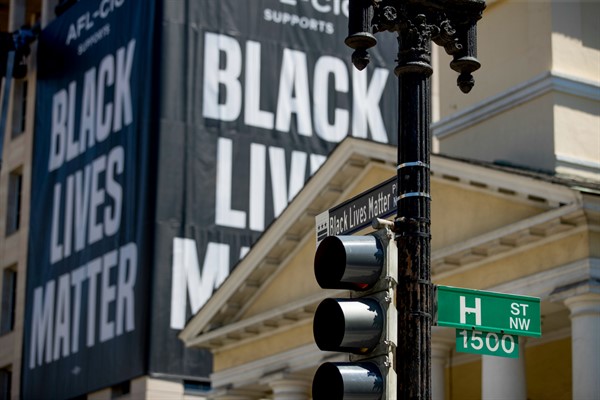The murders of George Floyd, Breonna Taylor and other black Americans by police, and the sustained protests in their wake, present a test for the United States both at home and abroad. They underscore the structural racism that permeates American society and how far the nation remains from delivering on the Constitution’s promise of equal rights and justice for all. Globally, they threaten America’s longstanding, if uneven, role as the world’s leading champion of universal human rights. The success of the Black Lives Matter movement is critical, not only to achieve a more perfect union at home, but also to advance human liberty and dignity worldwide.
Since World War II, the United States has made the global promotion of human rights an explicit foreign policy objective. Eleanor Roosevelt shepherded negotiations on the Universal Declaration of Human Rights in 1948, and U.S. diplomats have spearheaded the drafting of the many human rights treaties, from the International Convention on Civil and Political Rights to the Convention on the Rights of Persons with Disabilities. The State Department issues annual reports on human rights in countries around the world, as well as assessments on the state of international religious freedom and progress against human trafficking. Abroad, human rights and democracy activists rely on U.S. support in their struggles against tyranny and oppression.
However, American leadership in human rights has long been undercut by two stubborn realities: persistent racial injustice in the United States itself and the nation’s uneven commitment to being bound by the very norms it propounds globally. During the early years of the Cold War, the Soviet Union pointed to civil rights protests over Jim Crow laws as proof of American hypocrisy. More recently, the Chinese government has deflected criticism of its own human rights abuses by highlighting persistent U.S. racism.

